Policy Brief The Greater Involvement of People Living with HIV (GIPA)
Context
Nearly 40 million people in the world are living with HIV. In countries such as Botswana, Swaziland, and Lesotho people living with HIV make up a quarter or more of the population. People living with HIV are entitled to the same human rights as everyone else, including the right to access appropriate services, gender equality, self-determination and participation in decisions affecting their quality of life, and freedom from discrimination.
All national governments and leading development institutions have committed to meeting the eight Millennium Development Goals, which include halving extreme poverty, halting and beginning to reverse HIV and providing universal primary education by 2015. GIPA or the Greater Involvement of People Living with HIV is critical to halting and reversing the epidemic; in many countries reversing the epidemic is also critical to reducing poverty.
What is GIPA?
GIPA is not a project or programme. It is a principle that aims to realize the rights and responsibilities of people living with HIV, including their right to self-determination and participation in decision-making processes that affect their lives. In these efforts, GIPA also aims to enhance the quality and effectiveness of the AIDS response. The idea that personal experiences should shape the AIDS response was first voiced by people living with HIV in Denver in 1983.
The GIPA Principle was formalized at the 1994 Paris AIDS Summit when 42 countries agreed
to support a greater involvement of people living with HIV at all…levels…and to…stimulate the creation of supportive political, legal and social environments.
In 2001, 189 United Nations member countries endorsed the GIPA Principle as part of the Declaration of Commitment on HIV/AIDS. The 2006 Political Declaration on HIV/AIDS unanimously adopted by 192 Member States at the 2006 High Level Meeting on AIDS also advocated the greater involvement of people living with HIV.





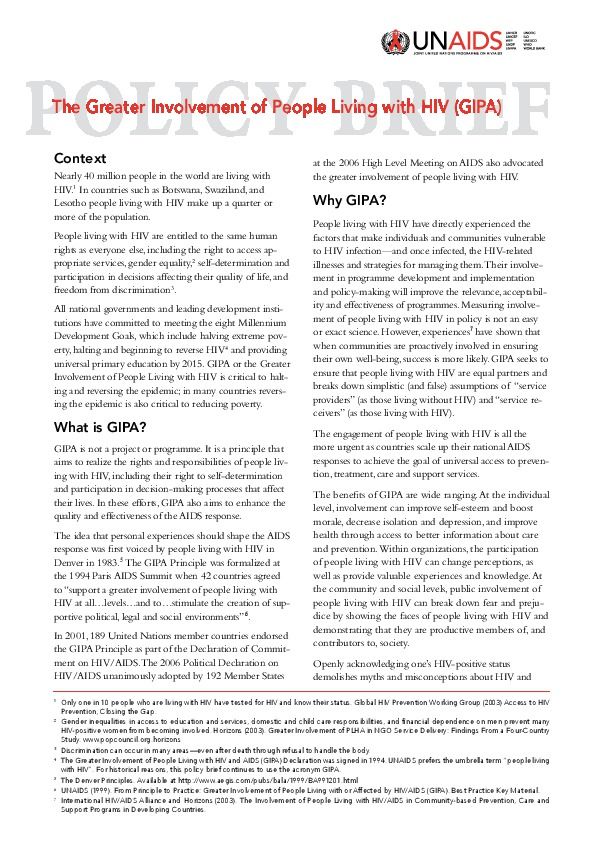
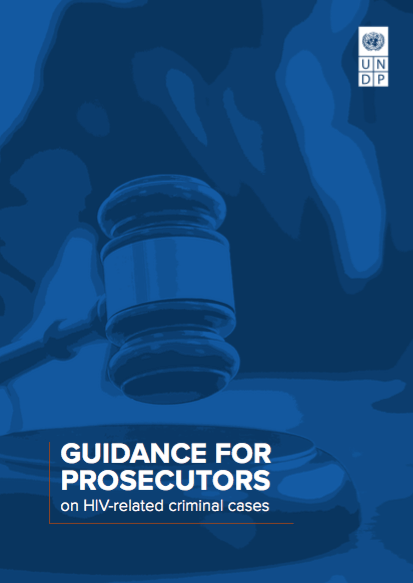 Guidance for prosecutors on HIV-related criminal cases.
Guidance for prosecutors on HIV-related criminal cases.
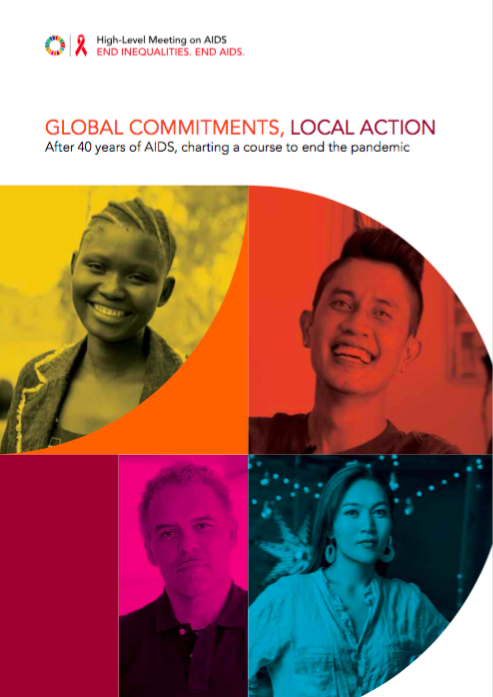 Global Commitments, Local Action. After 40 years of AIDS, charting a course to end the pandemic
Global Commitments, Local Action. After 40 years of AIDS, charting a course to end the pandemic
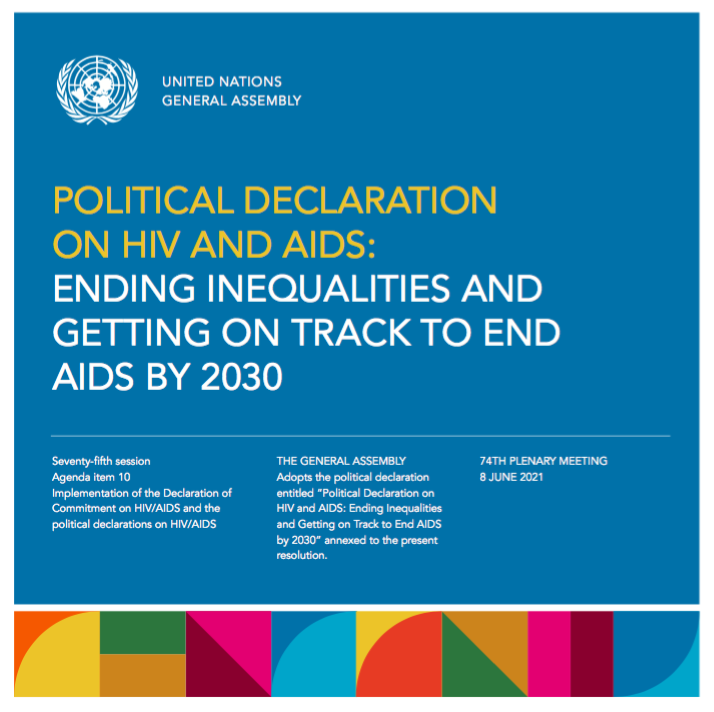 Political Declaration on HIV and AIDS: Ending Inequalities and Getting on Track to End AIDS by 2030
Political Declaration on HIV and AIDS: Ending Inequalities and Getting on Track to End AIDS by 2030
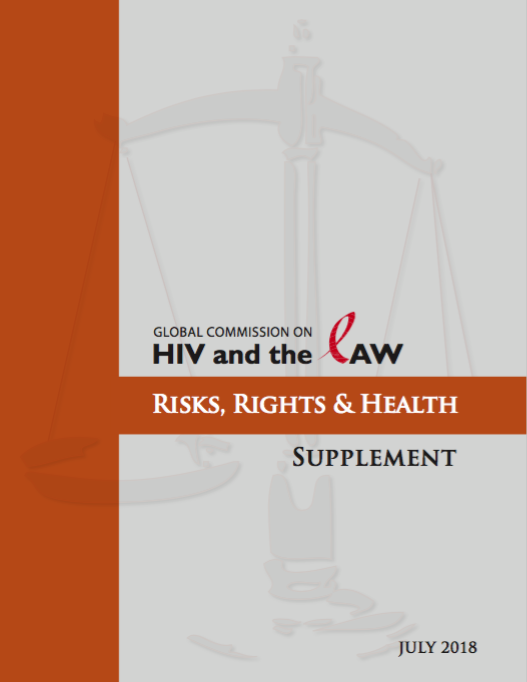 Supplement to the Report of the Global Commission on HIV and the Law “Risks, Rights & Health”
Supplement to the Report of the Global Commission on HIV and the Law “Risks, Rights & Health”